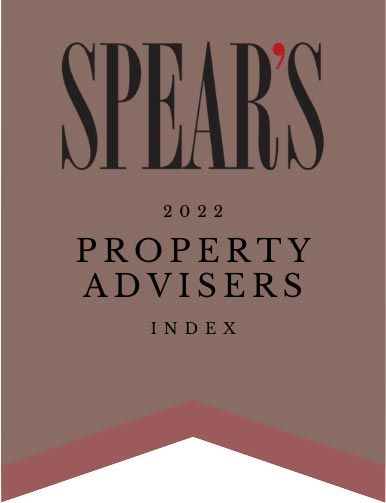One of the elements which sets us apart from other mortgage advisers is our private bank mortgage offering. Since we were established in 2003, we have built a network of close relationships with decision makers within private banks, which just aren’t available when working with a mainstream broker. That’s one of the reasons we work with lots of partner brokers, as well as individual clients.
We can find solutions which don’t exist ‘on the shelf’ because each and every private bank mortgage is considered on its own merit, and our team understands the complexities of the HNWI world, and how to present cases to secure funding. Our Associate Director Mark Pattanshetti takes us through some of the most common questions we receive about private bank mortgages…
In what instance would a client be considered for a private mortgage?
Usually, the loan would need to be £1m+ and the client would have a complex profile – for instance, their income or assets might be in a trust, based offshore, and a private bank would understand this structure and be able to work within it.
In other instances, we look to the private bank sector because clients have a portfolio of high value assets which they don’t want to liquidate. Therefore, they need to place these with the private bank as assets under management (AUM) to secure a large mortgage loan.
If clients are based overseas, they may not meet the ‘tick box’ requirements a High Street lender would need to see, purely because systems are different in their home jurisdiction. Private banks are generally used to working with overseas clients and will usually be more flexible and open to taking a view on the situation and manually underwriting the loan to ensure both parties are happy with the terms.
Are large loans available through High Street lenders?
Absolutely, and the mainstream lending market has become much more competitive and comprehensive in recent years. You can now find loans of up to £10m on the High Street, which was unheard of a few years ago. However, mainstream lenders will not have the flexibility that private banks will. In effect, private banks can create terms for clients if they want to capture their business or hang onto an existing client. Of course, the lending proposition must be viable and affordability criteria needs to be met, but private bank mortgages can look at this in different ways rather than purely assessing income. Mainstream lenders don’t have this flexibility, purely because of how they’re structured.
What are some of the different ways that private banks can look at income and affordability criteria?
Private banks do look at income, but they don’t take this metric in isolation, as most mainstream lenders do. They understand that – for many high net worth individuals – income isn’t a true reflection of their wealth, as their financial situations are much more complex than income in and expenditure out.
Traditionally, private banks look for a client to place assets under management. They can also ‘top slice’ assets, which means they will look at an asset portfolio (e.g. property, stocks and shares) and calculate the value of the assets. They can then base their lending on this amount, rather than purely assessing income.
Lombard lending is another technique which private banks can employ. It means placing custody and asset shares – which can include stocks, shares and insurance policies – with a bank that can lend against the assets.
Where are the best rates – private banks or mainstream lenders?
Although we can often negotiate fantastic rates for clients taking out a private bank mortgage, mainstream and High Street lenders tend to have the more competitive rates, purely because they are working on more of a volume -based model. The private bank lending we often arrange for clients is truly bespoke and built around their individual situation, and therefore a slight premium must sometimes be paid for that.
How has COVID-19 affected the private bank mortgage market?
In the mainstream mortgage world, we’ve seen swathes of products restricted or pulled altogether from the market. This is not the case in the private bank sector, which has – in many instances – become more competitive. Private banks can tweak their terms to fit the market and they have an appetite for certain client profiles, so this flexibility can often be of huge benefit to our clients.
What future trends to we expect to see in private bank lending sector in the coming months?
We have seen lots of activity with people buying overseas, both in those looking to purchase in the UK and Brits buying second homes abroad. Foreign buyers remain attracted by the weak pound, meaning UK property represents good value. These buyers often require the tailored approach a private bank can provide, as they just don’t have the basic requirements a mainstream lender requires to consider their applications.
In general, the private bank lending sector has opened up immensely from what it once was, and private banks have become a lot less restrictive and much more pragmatic about lending. They are now open to what we term ‘dry lends’ which means a client doesn’t always necessarily have to place assets under management with the bank. Historically, a private bank would be looking for a client to deposit between £500,0000 and £1m of assets with the bank to consider lending.
How will Brexit affect the private bank mortgage sector?
Amid the global COVID pandemic, the effects of Brexit have been somewhat side-lined by the media, but we are always mindful to advise our clients on all of the challenges in the market. Many of these remain uncertain until Brexit terms are clearly defined, however we do anticipate one change. Previously, European clients could look to ‘dry lend’. However, as we will no longer share the commonality of being EU citizens, we expect that UK private banks won’t be able to arrange dry lends for EU citizens and will require assets under management to secure a private bank mortgage.
For more information and insight surrounding large mortgages, don’t hesitate to get in touch with us. We can conduct a full review of your circumstances and ascertain the best way forward, tailored to your individual requirements.




















